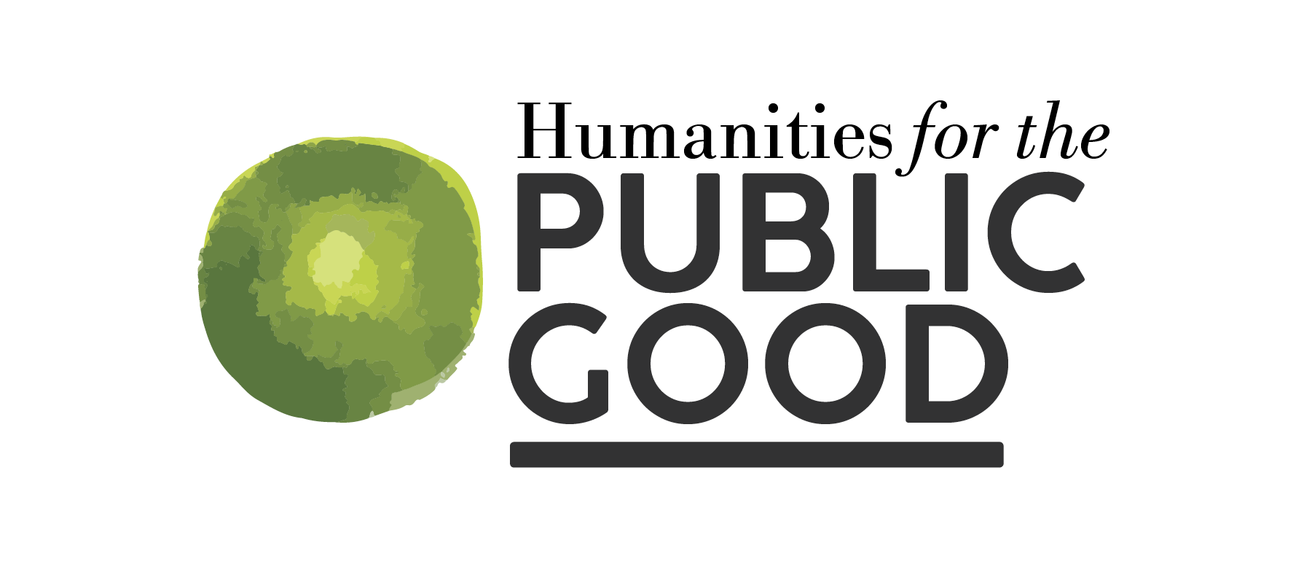One grant will bring exciting speakers to campus for a yearlong seminar on Latina/o/x identities and cultures; the other will create practice-based, cross-disciplinary opportunities for humanities graduate students interested in diverse careers.
The University of Iowa (UI) Obermann Center for Advanced Studies in the Office of the Vice President for Research will host two grants totaling nearly $1.6 million from the Andrew W. Mellon Foundation starting Oct. 1.
“We are honored to receive these awards, which will greatly strengthen our efforts to enhance and expand humanities scholarship,” said UI President Bruce Harreld. “We’re also grateful for the Mellon Foundation’s continued support of the University of Iowa over the years.”
Latina/o/x identity, belonging, and intersectional identities focus of Sawyer Seminar

The 2019-20 Mellon Sawyer Seminar “Imagining Latinidades: Articulations of National Belonging” will be co-directed by UI College of Liberal Arts and Sciences Latina/o Studies Program faculty member Darrel Wanzer-Serrano (Department of Communication Studies), Rene Rocha (Department of Political Science), and Ariana Ruiz (Department of Spanish & Portuguese), and will operate in partnership with the Obermann Center.
The seminar will include over 20 free presentations by renowned visiting scholars and artists, a film series, and public performances, all of which will engage questions of national identity, national belonging, intersectional identities (related to race/ethnicity, gender, sexuality, class, etc.), and Latina/o/x peoples. The $225,000 from Mellon’s Sawyer Seminar program, which supports research on the historical and cultural sources of contemporary developments, will also fund a postdoctoral fellow and the dissertation research of two affiliated UI graduate students.
“Latina/o/x people in the U.S. are often the focus of public policy and media coverage,” notes Wanzer-Serrano. “With more and more reports of everyday discrimination and hate against Latina/o/x peoples, their fate in the U.S. has never been more uncertain or more important to explore. This seminar will give University of Iowa students and scholars, the Iowa community, and the national media a chance to explore and have a productive discussion on questions of national belonging, national exclusion, and alternative practices of identification.”
“Imagining Latinidades” will build upon the strong foundation of the UI’s interdisciplinary Latina/o Studies Program, itself an outgrowth of the Obermann Center’s 2012 Humanities Symposium, “The Latino Midwest.” The Latina/o Studies Program offers 18 courses and a minor, which 27 students are currently pursuing.
Humanities for the Public Good: An Integrative, Collaborative, Practice-Based Humanities PhD

The University also received a four-year, $1,341,000 grant to support the Obermann Center’s creation of a degree in the Graduate College in collaboration with humanities departments that choose to participate, such as African American studies, American studies, anthropology, the visual and performing arts, art history, cinematic arts, classics, communication studies, history, languages, literature, philosophy, religious studies, and rhetoric. Campus libraries and museums will also be likely partners.
Focus groups involving more than 60 UI faculty members, staff, and graduate students laid the groundwork for the proposal to explore balancing the strength of courses in these subject areas with experiential learning of skills and multimedia forms of communication along with mentoring by alumni and experts from a variety of workplaces. The goal is to prepare students for diverse careers, specifically in the non-profit sector, public policy, government, libraries, cultural administration, technology, publishing, and institutional education and research. The program will explore benefits of campus-community partnerships, team-taught courses, and funded summer internships and externships. The grant includes funding for postdoctoral fellows, graduate interns, faculty development opportunities, visiting scholars, travel to conferences, and co-learning opportunities for students, staff, faculty members, alumni, and community partners.
Teresa Mangum, director of the Obermann Center, an interdisciplinary research center that provides funding and space to more than 100 faculty and student artists, scholars, and researchers each year, said she is committed both to fostering collaboration across academic and applied disciplines and to introducing graduate students to public engagement. In the past 13 years, the Obermann Center’s Graduate Institute on Engagement and the Academy has trained nearly 250 students to partner with allies in the public sector. Many of these students desire to pursue careers outside of the academy. Mangum notes, too, that women, LGBTQ students, and students of color are especially drawn to careers that connect research interests with community needs.
“We are deeply grateful to the Mellon Foundation,” Mangum said. “While we often hear about the devaluing of the humanities, I proposed this grant because I hold the opposite view. Our work these next few years presumes that humanities scholars can contribute much-needed commitment to culture, values, careful research, historically and culturally sensitive practices, and civic dialogue to every sector. Increasingly, businesses as well as political, nonprofit, and cultural organizations see the importance of humanistic values—commitment to equity, inclusion, justice, empathy, and compassion—and humanistic methods and emphases on interpretation, storytelling, and meaning-making.”
In preparing the grant, Mangum consulted with policymakers and leaders of museums and non-profits, finding interest on all sides. She also met with executives from several companies in Des Moines to gauge their interest in hiring—as interns or permanent employees—graduates earning humanities doctorates. She heard widespread appreciation for the cultural knowledge, research and analytical skills, and writing abilities graduates of humanities PhD programs could bring to a workplace. Her work was also influenced by the yearlong experiments with new forms of writing in the humanities supported by a National Endowment for the Humanities Next Generation Humanities PhD grant led by then UI Professor Judith Pascoe.
Forging alliances
“‘Humanities for the Public Good’ asks instructional and tenured faculty, staff, alumni, and potential employers to forge alliances,” said Mangum. “We’re fortunate to have strong support for humanities graduate education from the College of Liberal Arts and Sciences, the UI Libraries’ Digital Studio, the Office of the Vice President for Research, the Graduate College, the cross-disciplinary Humanities Advisory Board, and, of course, the Obermann Center. Together, we can give students good reasons to pursue graduate humanities degrees and give employers good reasons to hire PhDs who integrate familiar research and writing with career skills gained through applied practice.”

John Keller, Graduate College dean and interim vice president for research, said the Mellon awards coincide this year with a ranking by The Chronicle of Higher Education of the UI as 21st in the nation among U.S. colleges with the greatest research-and-development spending in the humanities.
“At the University of Iowa, we have the bedrock on which to build inspiring opportunities for grad students in the humanities,” Keller said. “We have uniquely intertwined arts and humanities programs; a wealth of untapped alumni in diverse careers; and growing scholarly expertise in public history, oral history, digital arts and humanities methods, multimedia writing for varied audiences, and publicly engaged scholarship.”
The UI has enjoyed a long and fruitful relationship with the Mellon Foundation.
Long and fruitful relationship with the Mellon Foundation
In 2015, the Obermann Center for Advanced Studies collaborated with Grinnell College on a a multi-year Mellon grant for Digital Bridges for Humanistic Inquiry: A Grinnell College/University of Iowa Partnership. With support from the UI Libraries’ Digital Scholarship & Publishing Studio and digital librarians at Grinnell College, UI and Grinnell faculty members and students enriched the teaching and research mission of both institutions through their work together.
In addition, the Graduate College and the Obermann Center assisted three faculty members: Tim Barrett (Center for the Book), Paul Dilley (Departments of Classics and Religious Studies), and Katherine Tachau (Department of History), who received an award for another Mellon Sawyer Seminar, “Cultural and Textual Exchanges: The Manuscript across Pre-Modern Eurasia.” The year-long, interdisciplinary collaboration brought 25 international scholars and conservators to the UI to map cultural exchanges across Eurasia around 400 CE. The seminar members studied traveling manuscript technologies through presentations and hands-on workshops.
Said Mangum, “The first Sawyer Seminar brilliantly embodied the ‘Iowa Idea’—learning through the imaginative entanglement of scholarship and the arts. As we launch these next two grants, we’ll be building on the widening networks we’ve created and the valuable lessons about collaboration we’ve gleaned thanks to the Mellon Foundation’s generosity.”
Mangum will share further details of the grant at an opening event scheduled for 4 p.m. Nov. 13 at the Iowa City Public Library.
